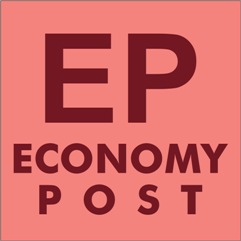Uttar Pradesh chief minister Yogi Adityanath today underlined that Uttar Pradesh, which is India’s biggest consumer market, will benefit immensely with the Goods and Services Tax (GST) reforms.
Addressing a press conference at his official residence in Lucknow, Yogi termed the GST 2.0 reforms as a ‘Diwali gift’ from Prime Minister Narendra Modi to the nation.
“The decision will provide relief from inflation, strengthen trade, and simplify the lives of citizens. Effective from September 22, coinciding with the beginning of Sharadiya Navratri, these reforms will directly benefit consumers, farmers, businesses and ordinary families,” he noted.
The CM expressed gratitude to Modi and union finance minister Nirmala Sitharaman for the ‘landmark’ decision, and said, “this is not merely a tax change but part of a broader campaign to boost India’s economy.”
Since GST is a consumer tax, UP – having the largest consumer base – stands to gain significantly from the GST 2.0, he maintained.
He said before the rollout of GST in July 2017, a web of complex taxes — VAT, sales tax, service tax, excise duty, entry tax, and entertainment tax — burdened consumers and businesses alike.
“GST unified these into a ‘One Nation, One Tax’ system. The earlier four-tier structure of 5%, 12%, 18%, and 28% has been simplified to just two slabs 5% and 18%. While a 40% rate will continue on select luxury items, the removal of the 12% and 28% slabs will bring significant relief to the common man. From kitchens to agriculture, housing construction to highways, and industry to trade, every sector stands to benefit,” he added.
Calling it historic for farmers and rural India, Yogi said the tax on tractors, tyres, pesticides, and irrigation equipment has been cut to 5%, reducing farming costs and increasing productivity. This, he emphasized, will not only bring relief to farmers but also give a significant push to the rural economy.
He said tax registrations have been made auto-approvable, refunds are being processed faster, and risk-based compliance and labor reforms have been implemented.
Before GST, India’s tax collection stood at just Rs 7 trillion; today, it has surged to Rs 22.8 trillion, while the number of GST taxpayers has risen from 6.5 million to 15.1 million.
Turning to UP, the CM said the revenue from VAT and sales tax was only Rs 49,000 crore before 2017, but has now increased to Rs 1.15 trillion lakh crore (excluding the state’s central share).
These reforms have enabled the expansion of expressways, metro rail, and airport networks in the state, he claimed.
UP’s peppermint, footwear, readymade garments, and One District One Product (ODOP) industries will particularly benefit.
While synthetic menthol has been taxed at 18%, organic menthol — produced largely in UP — will be taxed at only 5%, providing a major boost to both farmers and industries.
The ODOP scheme has revitalized traditional crafts, with only 5% GST now applicable on products such as Banarasi sarees, Lucknow’s Chikankari, Bareilly’s Zardozi, Jalaun’s paper industry, and Firozabad’s glassware. This, will spur demand, expand production, and create large-scale employment.
Yogi also spoke of welfare initiatives for traders. Through the Traders Welfare Board, the UP government has encouraged tax registrations and provided a Rs 1 lakh security insurance cover to tax-paying traders.
So far, over Rs 152 crore in insurance claims has been distributed to 1,063 families. In addition, the state honors honest tax-paying traders every year on June 29, he said.

